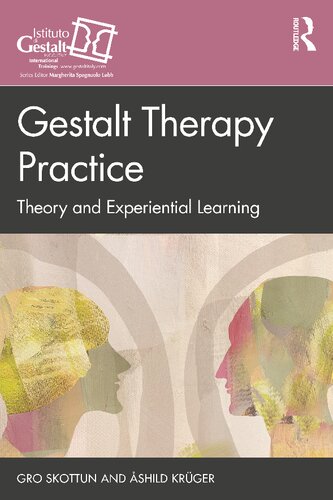

Most ebook files are in PDF format, so you can easily read them using various software such as Foxit Reader or directly on the Google Chrome browser.
Some ebook files are released by publishers in other formats such as .awz, .mobi, .epub, .fb2, etc. You may need to install specific software to read these formats on mobile/PC, such as Calibre.
Please read the tutorial at this link: https://ebookbell.com/faq
We offer FREE conversion to the popular formats you request; however, this may take some time. Therefore, right after payment, please email us, and we will try to provide the service as quickly as possible.
For some exceptional file formats or broken links (if any), please refrain from opening any disputes. Instead, email us first, and we will try to assist within a maximum of 6 hours.
EbookBell Team

4.3
28 reviewsThis essential new book gives the reader an introduction to the fundamental concepts of gestalt therapy in a stimulating and accessible style. It supports the study and practice of gestalt therapy for clinicians of all backgrounds, reflecting a practice-based pedagogy that emphasises experiential learning.
The content in this book builds on the curriculum taught at the Norwegian Gestalt Institute University College (NGI). The material is divided into four main sections. In the first section, the theoretical basis for gestalt therapy is presented with references to gestalt psychology, field theory, phenomenology, and existential philosophy. In the later parts, central theoretical terms and practical models are discussed, such as the paradoxical theory of change, creative adjustment, self, contact, contact forms, awareness, polarities, and process models. Clinical examples illustrate the therapy form’s emphasis on the relational meeting between therapist and client.
Detailed description of gestalt therapy theory from the time of the gestalt psychologists to today, with abundant examples from clinical practice, distinguishes this book from other texts. It will be of great value to therapists, coaches, and students of gestalt therapy.